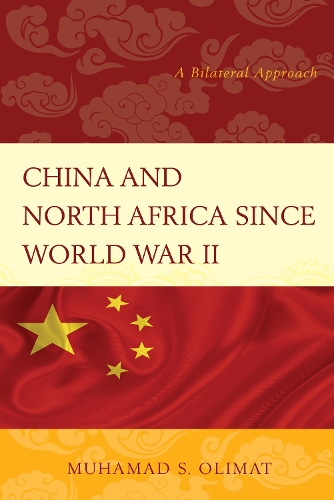
China and North Africa since World War II: A Bilateral Approach
(Paperback)
Available Formats
Publishing Details
China and North Africa since World War II: A Bilateral Approach
By (Author) Muhamad S. Olimat
Bloomsbury Publishing PLC
Lexington Books
7th June 2016
United States
Classifications
Professional and Scholarly
Non Fiction
327.51061
Physical Properties
Paperback
244
Width 152mm, Height 226mm, Spine 19mm
372g
Description
This manuscript examines Sino-North Africa relations on a bilateral level since World War II. It highlights the depth of Chinas involvement in the region with each country on a five dimensional approach: energy security, trade relations, political relations, arms sales/security cooperation, and cultural relations. Regarding each of these criteria, North Africa holds a strategic significance to Chinas national security, vital interests, territorial integrity, sovereignty, regime survival, and economic prosperity. China has been an integral part of the political developments on North Africa political scene since the early 1950s. It has supported the regions quest for independence and national liberation, exchanged diplomatic recognition, and established political partnerships. Apparently, the peoples of the North Africa and Africa at large are enthusiastic about Chinas increasingly involved role. However, Chinas heavy involvement in the continents oil sector, minerals, fisheries, corporate-practices, and its unconditional support to autocracies is mobilizing some resentment over Chinas intentions in the region. Some intellectual trends are currently equating China with imperialism and neo-imperialism. Therefore, to ensure equitable relations with Africa, China and its corporations should refrain from colonial practices, exploitation, and environmental degradation. China also needs to contribute to the regions process of development, industrialization, development, and stability. Otherwise, its presence might not endure in comparison to British, French, Spanish, or Portuguese presence in the continent.
Author Bio
Muhamad S. Olimat is associate professor of international relations and Middle East studies at the Institute for Civil and International Security at Khalifa University for Science, Technology and Research.
